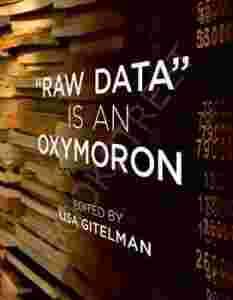''RAW DATA'' IS AN OXYMORON (INFRASTRUCTURES)

Aukcja w czasie sprawdzania była zakończona.
Cena kup teraz: 165.90 zł
Użytkownik bookstreet
numer aukcji: 3897970167
Miejscowość Kalisz
Wyświetleń: 5
Koniec: 18-02-2014 00:32:22
Dodatkowe informacje:
Stan: Nowy
Okładka: miękka
Rok wydania (xxxx): 2013
Kondycja: bez śladów używania
Język: angielski
